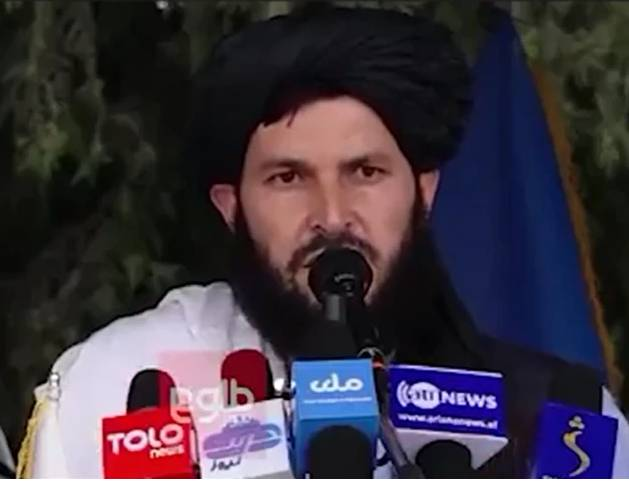by PULSE PAKISTAN | May 28, 2025
ISLAMABAD — In a rare and strong-worded statement, Afghan Taliban Commander Saeedullah Saeed has denounced unauthorized militant actions in Pakistan, declaring them un-Islamic and illegitimate under Shariah.
Speaking at a police passing-out ceremony, Commander Saeed stated that only the Emir of the Islamic Emirate holds the authority to declare jihad. He warned that groups or individuals waging so-called jihad in Pakistan without this command are not Mujahideen but are instead committing fasad (corruption).
“Jihad based on personal ego or group loyalty is not jihad—it is anarchy,” Saeed emphasized.
He further clarified that cross-border operations into Pakistan, carried out in the name of jihad, directly violate the orders of the Emir and are acts of religious disobedience. Saeed underscored that the Islamic Emirate has prohibited such unauthorized activity and that those ignoring this directive are defying both Shariah and the Afghan state authority.
Reinforcing Pakistan’s Narrative
Security analysts in Pakistan welcomed the statement, noting that it validates Pakistan’s stance against terror outfits such as the Tehreek-e-Taliban Pakistan (TTP). Many of these groups have operated from Afghan soil under the banner of jihad, targeting Pakistani civilians and military personnel.
Experts also pointed fingers at Indian proxies, allegedly backing these so-called jihadists, describing them as “Fitna Al-Khawarij”—a term historically used for rebels and extremists who distort religious teachings.
“Such actions are not jihad; they’re terrorism dressed in false piety,” remarked one defense expert.
A Shift in Kabul’s Posture
While tensions between Islamabad and New Delhi remain high, recent months have seen improved cooperation between Pakistan and the interim Afghan government. A delegation led by Ambassador Muhammad Sadiq Khan visited Kabul in March, marking a pivotal moment in counterterrorism diplomacy.
For the first time, Afghan authorities launched a crackdown on TTP-linked Afghan nationals, arresting and prosecuting recruiters and facilitators. One major breakthrough came when the Afghan Taliban apprehended individuals responsible for helping over 70 terrorists attempt to infiltrate Pakistan shortly after the Pahalgam attack—all of whom were neutralized at the border near North Waziristan.
This marks Pakistan’s biggest single-day counterterrorism success since the post-9/11 War on Terror began.



